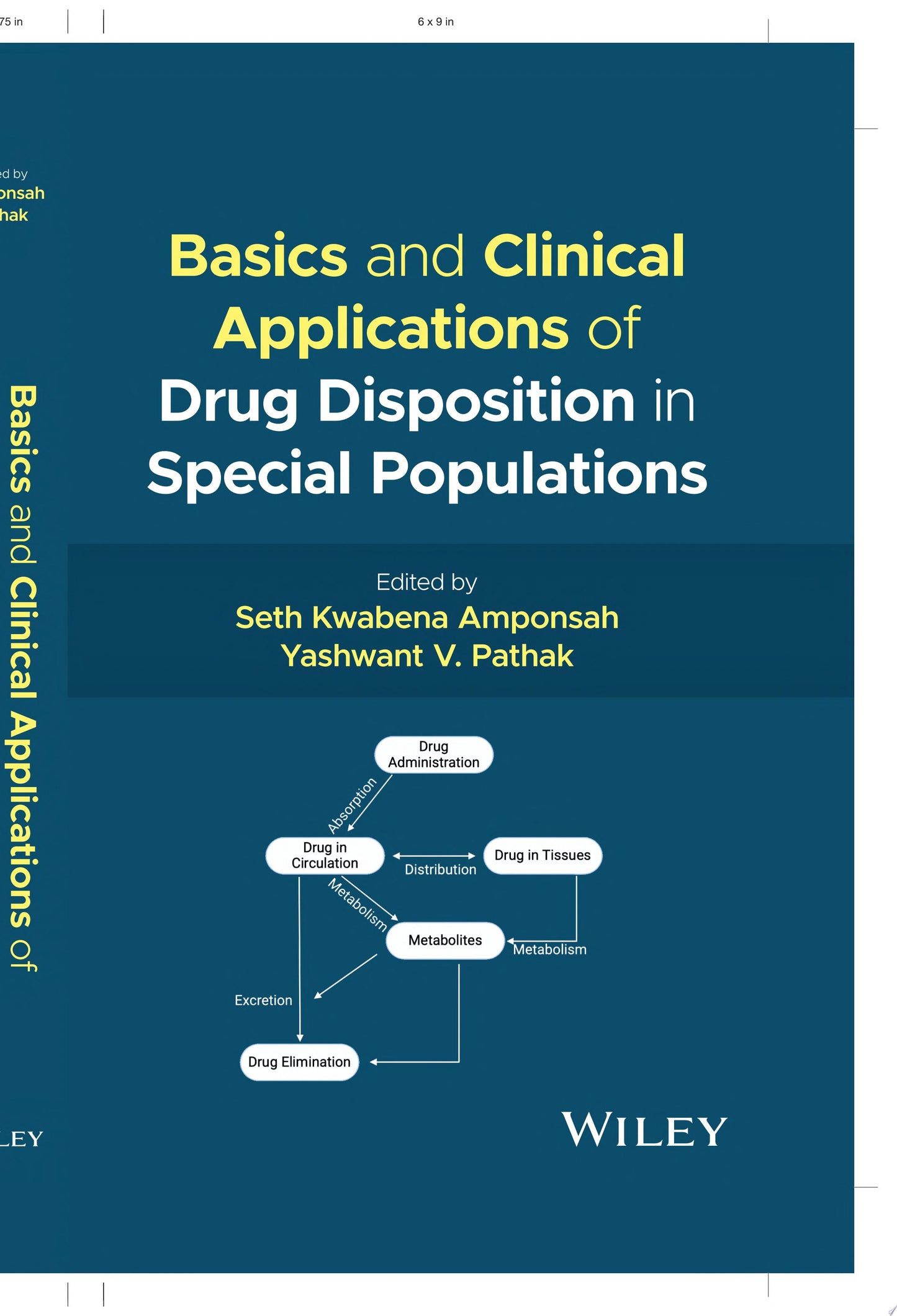Instant Download
Your unique download link appears right after you complete your purchase, and is also sent instantly to the email address you provided.
support@doctorbooks.online
Pediatrics Encyclopedia - up to 70% Off All Ebooks

Couldn't load pickup availability

Your unique download link appears right after you complete your purchase, and is also sent instantly to the email address you provided.
9781394251292, 1394251297
Seth Kwabena Amponsah, Yashwant V. Pathak
John Wiley & Sons
April 3, 2025
480
An up-to-date exploration of techniques for effectively treating patients from special populations In Basics and Clinical Applications of Drug Disposition in Special Populations, a team of distinguished researchers delivers a timely and authoritative discussion of how to predict drug disposition in special populations, including people with obesity, pediatric patients, geriatric patients, and patients with renal and hepatic impairment. The authors use pharmacokinetic models to account for variabilities between populations and to better predict drug disposition. The book offers a collection of 15 chapters written by recognized experts in their respective fields. They cover topics ranging from the optimization of drug dosing regimens in specialized populations to model-based approaches in drug treatment among pediatrics. Readers will also find: A thorough introduction to considerations and regulatory affairs for clinical research in special populations Comprehensive explorations of drug disposition in geriatrics, patients with hepatic insufficiency, and patients with renal insufficiency Practical discussions of model-based pharmacokinetic approaches Complete treatments of artificial intelligence in drug development Perfect for practicing pharmacologists, pharmacists, and clinical chemists, Basics and Clinical Applications of Drug Disposition in Special Populations will also benefit medical professionals who provide medical and pharmaceutical care to special populations.

